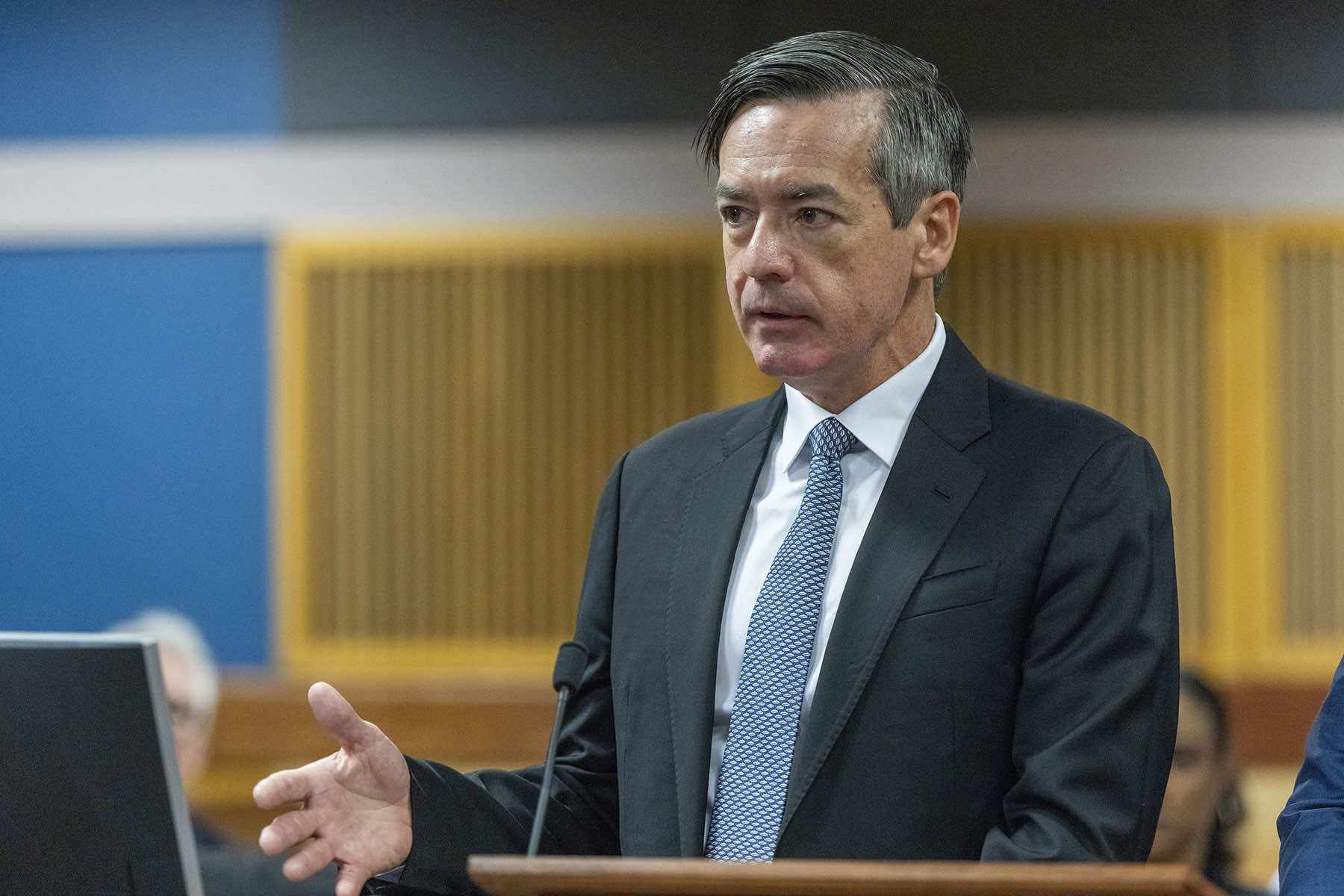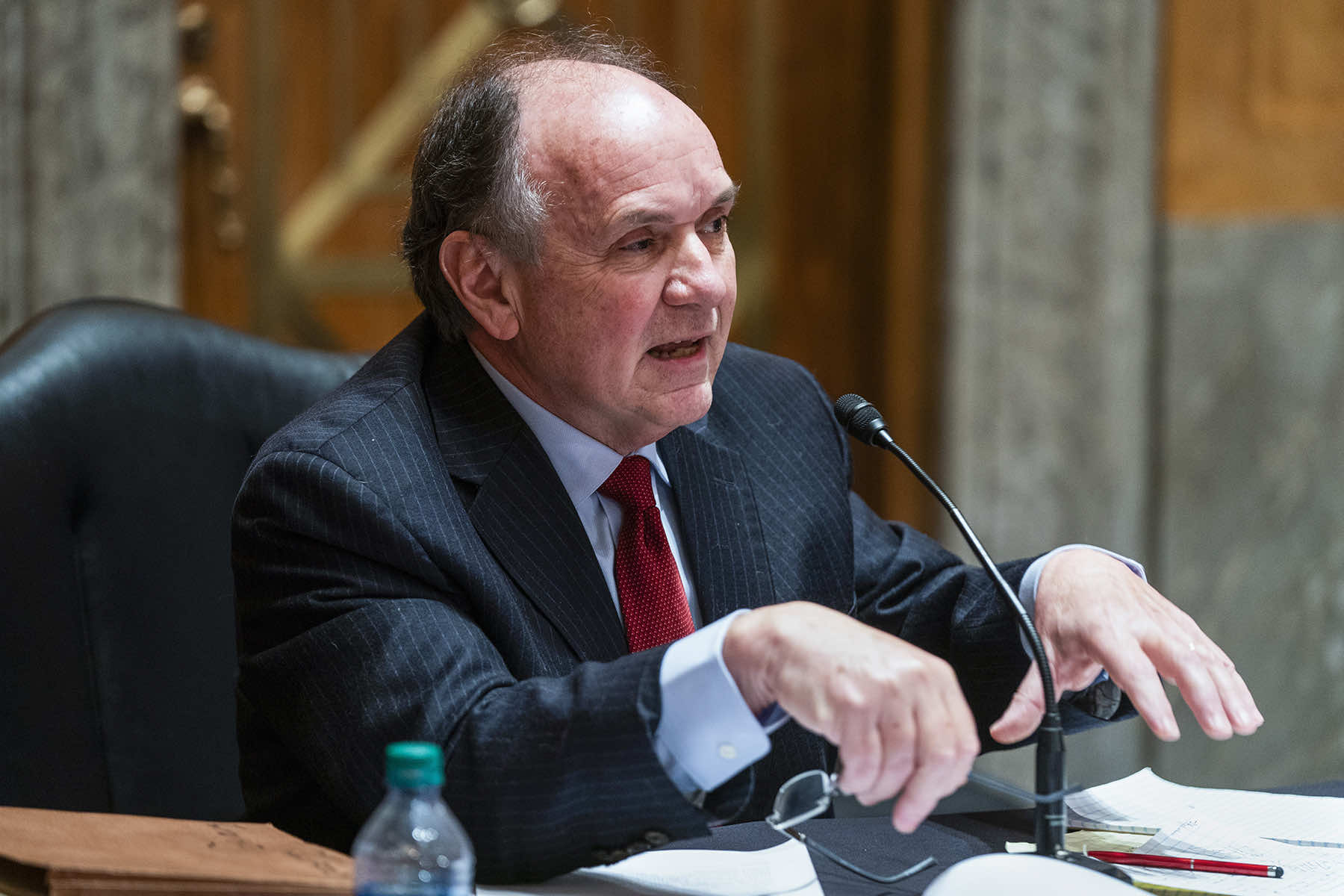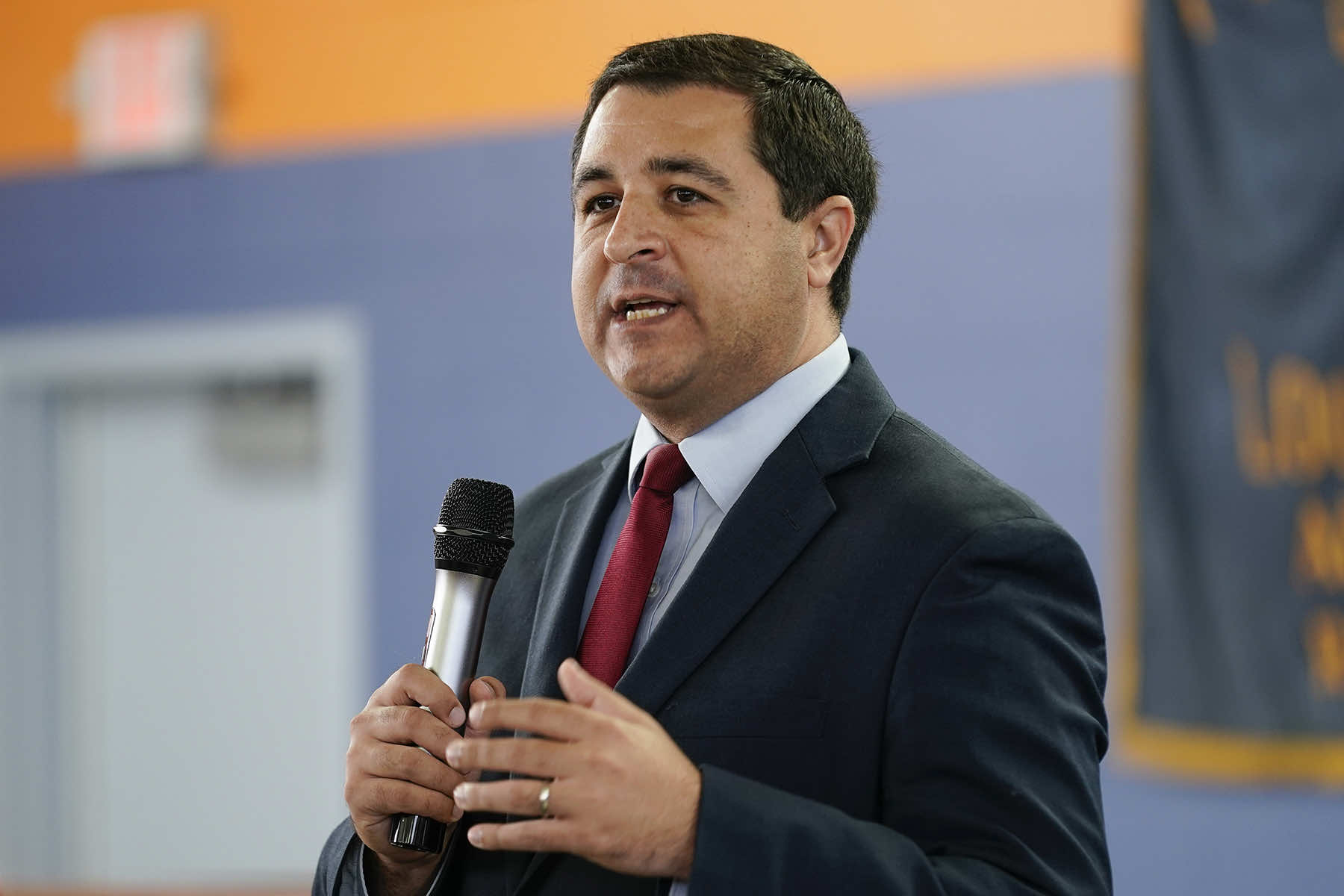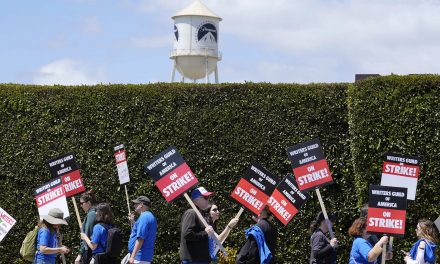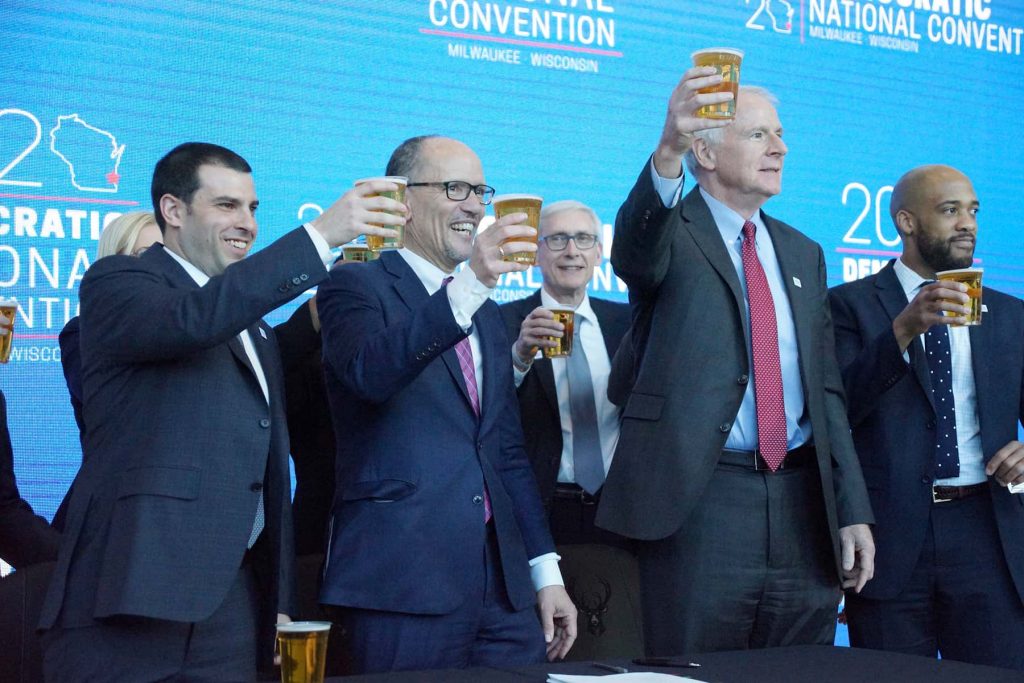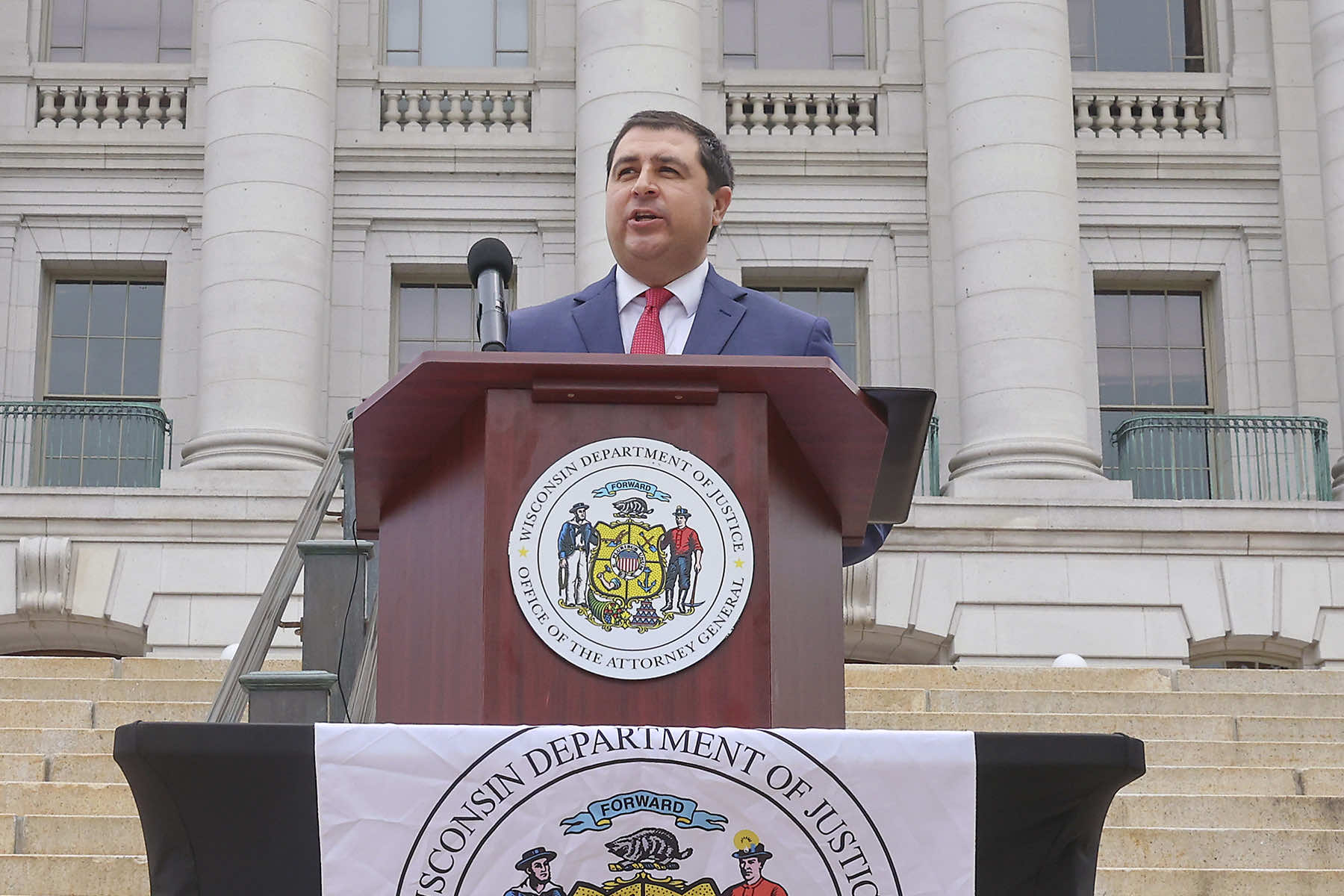
Wisconsin Attorney General Josh Kaul filed felony forgery charges Tuesday against two attorneys and an aide who helped submit paperwork falsely saying that former President Donald Trump had won the battleground state in 2020.
The state charges are the first to come in Wisconsin and follow separate charges brought in Arizona, Michigan, Nevada, and Georgia related to the fake electors scheme.
Democratic Governor Tony Evers offered a one-word response to news of the charges being filed: “Good.”
The Wisconsin charges were filed against Trump’s attorney in the state, Jim Troupis, 62, attorney Kenneth Chesebro, 62, who was advising the campaign and Mike Roman, 51, who was Trump’s director of Election Day operations.
Roman allegedly delivered Wisconsin’s fake elector paperwork to a Pennsylvania congressman’s staffer in order to get them to then-Vice President Mike Pence on January 6, 2021.
All three are due in Dane County Circuit Court on September 19, according to court records. They each face one felony count punishable by up to six years in prison and fines of up to $10,000.
Kaul did not rule out filing more charges, including against the 10 fake electors, saying that the investigation is ongoing.
“Our approach has been focused on following the facts where they lead,” he said at a news conference.
Electors are people appointed to represent voters in presidential elections. The winner of the popular vote in each state determines which party’s electors are sent to the Electoral College, which meets in December after the election to certify the outcome.
Dane County Clerk Scott McDonell and Milwaukee County Clerk George Christenson released a joint statement saying, “As election officials in Wisconsin we are very glad to see that Attorney General Kaul is taking seriously the efforts to overthrow the legitimate votes of Wisconsin citizens in the 2020 Presidential election. The architects of the fake electors scheme should be brought to justice as a deterrent to any who may consider engaging in similar acts in the future. Attempting to engage in insurrection or coups are deeply un-American and should be prosecuted to the full extent of the law.”
The fake elector efforts are central to an August federal indictment filed against Trump alleging he tried to overturn results of the 2020 election. Federal prosecutors, investigating his conduct related to the January 6, 2021, U.S. Capitol riot, have also said the scheme originated in Wisconsin. Trump also faces charges in Georgia and has denied wrongdoing.
Chesebro and Roman were among the 18 people indicted along with Trump in August in a sprawling racketeering indictment in Georgia. They’re accused of participating in a wide-ranging scheme to illegally overturn the 2020 election in that state.
Chesebro in October pleaded guilty to one felony charge of conspiracy to commit filing false documents after reaching a deal with Georgia prosecutors. Roman has pleaded not guilty to racketeering and conspiracy charges related to a plan to have Republican electors meet and cast Electoral College votes for Trump even though Biden had won Georgia.
Roman also faces nine felony charges in Arizona related to the fake electors scheme there, including conspiracy, fraud, and forgery.
“At what point are we going to ask, ‘Is there anyone associated with Donald Trump who isn’t a criminal?’ I applaud AG Kaul for bringing these three democracy lawbreakers to justice,” said U.S. Representative Mark Pocan.
Representative Pocan previously called for the U.S. Department of Justice to investigate this scheme in January 2022.
The 10 Wisconsin electors, Chesebro and Troupis, who was Trump’s attorney in Wisconsin, all settled a civil lawsuit that was brought against them last year.
Documents released as part of those settlements showed that the strategy in Wisconsin replicated moves in six other swing states.
The complaint goes into detail largely citing those documents, interviews and testimony given to Congress about how the fake elector scheme was hatched.
The complaint details how Chesebro emailed a memo on November 18, 2020, to Troupis and others arguing that electors representing Trump should meet on December 14, 2020, to preserve the Trump-Pence electoral slate in case a court or Legislature would determine them to be the winners.
Chesebro argued in a subsequent memo that the Trump electors could be counted by Congress if court challenges to his loss were still pending. Troupis sent both memos to the Trump White House, according to the complaint.
On December 9, 2020, Chesebro emailed Troupis a memo with instructions for the December 14, 2020, elector meetings. Two days later, Chesebro emailed Trump aide Roman details of the plan, the complaint said.
During or around the time of the December 14, 2020, meeting, Chesebro sent a message to Troupis and Roman that said, “WI meeting of the ‘real’ electors is a go!!!,” the complaint said. Troupis responded with a “thumbs up” emoji, the complaint said.
The complaint also details how the fake elector slate was delivered to Chesebro from Wisconsin to Washington DC, on January 5, 2021, by Alesha Guenther, a law student working part-time at the Republican Party of Wisconsin. Roman told Guenther to deliver the paperwork only to Chesebro.
“5 mins until I make the drop,” Guenther texted at one point, according to the complaint. “I feel like a drug dealer.”
Once Chesebro was given the documents, he emailed Roman to let him know he had them.
Roman then arranged for a congressional staff member to meet Chesebro and take the document. Chesebro sent Roman a message confirming that it had been done, the complaint said.
Trump lost Wisconsin to Biden, a Democrat, by fewer than 21,000 votes. Trump carried Wisconsin by a similar margin in 2016.
“The fake electors’ scheme in Wisconsin sought to disenfranchise my constituents and end democracy,” said Congresswoman Gwen Moore in a statement. “I have long called for accountability and am pleased that Attorney General Kaul sought justice for those involved in the fake electors’ scheme in Wisconsin.”
Government and outside investigations have uniformly found there was no evidence of widespread voter fraud that could have swung the 2020 election. But Trump has continued to spread falsehoods about the election, particularly in Wisconsin.

